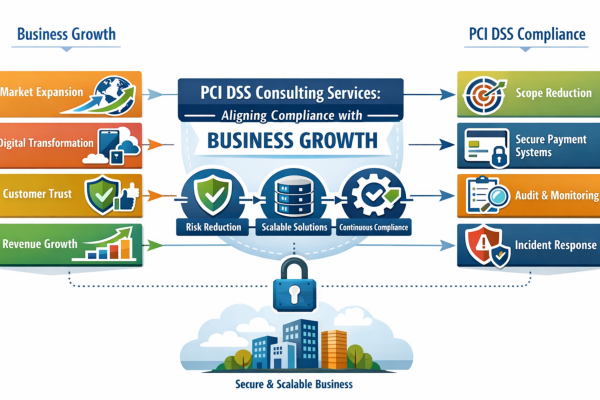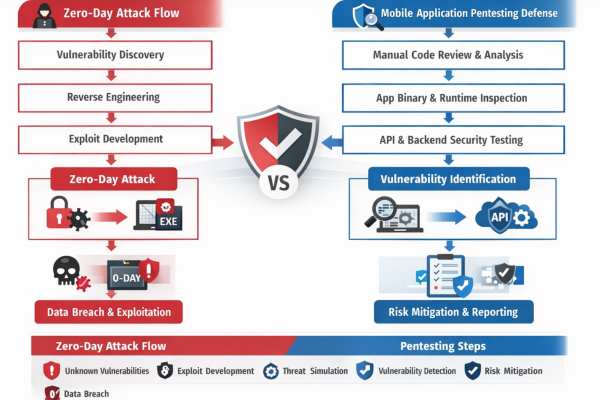How GDPR Compliance is Changing Marketing and Customer Data Use in 2025
The General Data Protection Regulation (GDPR) has been a game-changer since it came into force in 2018. Designed to protect the privacy and personal data of EU citizens, it has transformed the way businesses operate—especially in marketing.
In 2025, the landscape is shifting again. With stricter enforcement, new guidance from regulators, and the complete phase-out of third-party cookies, companies must rethink their customer engagement strategies. Businesses are increasingly turning to GDPR compliance services to ensure their marketing practices meet evolving data protection rules while building trust with customers.
GDPR’s Evolving Impact on Marketing in 2025
Marketing has always relied on data—who your customers are, what they like, and how they behave online. However, GDPR has changed how marketers collect, store, and use that information.
In 2025, these changes are more pronounced:
- Stricter Consent Requirements – Marketers can no longer rely on vague opt-ins or pre-ticked boxes. Consent must be freely given, specific, informed, and unambiguous.
- Transparency as a Must-Have – Privacy notices now need to be simpler, clearer, and easy to understand, even for non-technical audiences.
- Accountability and Proof – Businesses must be able to prove that consent was obtained lawfully and can be withdrawn just as easily.
Changes in Customer Data Collection
The End of Third-Party Cookies
Google completed its long-promised phase-out of third-party cookies in Chrome in 2025. Other browsers like Safari and Firefox had already made this move earlier, but Google’s action cemented the shift. This means advertisers and marketers can no longer rely on cross-site tracking to target users.
Rise of First-Party Data
First-party data—information collected directly from customers through your own channels—has become the most valuable marketing asset. Examples include:
Purchase history
Customer service interactions
Website analytics data
Zero-Party Data
Zero-party data takes this a step further: it’s data customers voluntarily provide, such as preference settings, survey responses, or feedback forms. This kind of data is not just GDPR-compliant—it’s a trust signal.
Privacy-Friendly Analytics
With the decline of third-party tracking, many companies are switching to privacy-friendly analytics platforms that offer aggregated, anonymized insights without storing personal identifiers.
Consent Management in 2025
Simpler, Clearer Consent Banners
Consent banners have evolved from clunky pop-ups to user-friendly interfaces. They must now:
Offer clear “Accept” and “Reject” options of equal visibility
Avoid manipulative language or “dark patterns”
Provide granular choices for different data processing activities
The Fall of Consent-or-Pay Models
In early 2025, the European Data Protection Board clarified that “consent-or-pay” models—where users must pay to avoid data tracking—do not meet GDPR’s standard for freely given consent.
Easier Withdrawal
GDPR requires that withdrawing consent should be as easy as giving it. This means marketers need to build opt-out options directly into email footers, account settings, and apps.
Impact on Email Marketing & CRM
Double Opt-In as the New Standard
Double opt-in (where customers confirm their subscription via email) is becoming the expected norm. It ensures valid consent and protects against accidental sign-ups.
Tighter List Management
Marketing teams must regularly clean up contact lists, removing inactive or unsubscribed users to avoid processing unnecessary data.
GDPR-Compliant Automation
Email marketing tools now integrate features like automatic consent logging, secure storage, and data deletion workflows—making it easier for companies to stay compliant.
Personalization vs. Privacy
The Balancing Act
Personalized marketing still works—but only when it respects privacy. GDPR requires companies to process the minimum amount of data necessary for personalization.
AI-Powered Personalization Under Scrutiny
With the rise of AI-driven recommendations, GDPR enforcement bodies are focusing on explainability. If your AI system targets customers based on personal data, you must be able to explain how decisions are made.
Ethical Personalization Examples
- Suggesting products based on previous purchases (with customer consent)
- Offering location-based promotions without storing exact GPS data
Role of GDPR Compliance Services in Marketing
In 2025, GDPR compliance is too complex for many marketing teams to handle alone. GDPR compliance services provide:
- Data Mapping & Audits – Identifying all points where customer data is collected, stored, and processed.
- Privacy Impact Assessments (PIAs) – Evaluating the privacy risks of new marketing campaigns or tools.
- Consent Management Systems (CMS) – Implementing platforms to track and store proof of consent.
- Staff Training – Educating marketing teams on GDPR best practices and common pitfalls.
- Regulatory Monitoring – Keeping up with new guidance and enforcement trends.
Best Practices for Marketers in 2025
- Invest in First-Party Data Strategies
Build stronger relationships with customers through loyalty programs, exclusive offers, and interactive content. - Be Transparent
Always tell customers how their data will be used—and deliver on that promise. - Use Privacy-Enhancing Technologies (PETs)
Consider tools like differential privacy, anonymization, and encrypted data sharing. - Regular Compliance Checks
Conduct quarterly GDPR audits to ensure marketing activities remain lawful. - Integrate Privacy into Design
Make privacy a core consideration when developing campaigns, websites, and apps.
Future Outlook
The marketing world will continue to evolve as privacy expectations grow. Upcoming developments include:
- Stricter AI regulations in line with GDPR principles.
- More global privacy laws inspired by GDPR, creating a worldwide standard.
- Increasing consumer preference for brands that prioritize ethical data use.
By investing in GDPR compliance services, marketers can not only stay ahead of legal requirements but also differentiate themselves as trustworthy, customer-first businesses.
Conclusion
Marketing in 2025 is no longer just about creative campaigns—it’s about earning and keeping customer trust. GDPR has shifted the focus from data exploitation to data responsibility.
For companies that embrace these changes, the reward is clear: stronger customer relationships, better brand reputation, and sustainable growth in a privacy-first world.
Author







